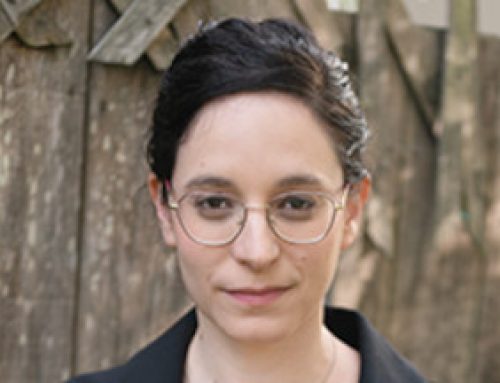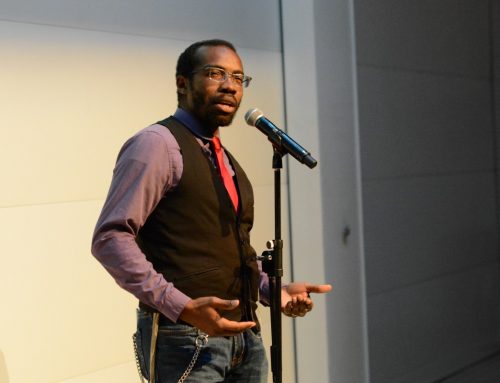Syllabus
Pause for a moment to consider these big human questions.
- What Stories do We Tell?
- What Has Power Over Us?
- For Whom are We Responsible?
As individuals, we define ourselves by telling stories about our past; we act in the world with a conscious, and often unconscious, awareness of certain obligations and consequences; and we make decisions every day about how we relate to the individuals and communities around us. As humans integrated into families, relationships, communities, states, and global networks, we constantly need to address these questions in our daily lives. In this course, we will use these fundamental questions about the place of us as individuals and members of larger communities as the lens for studying Judaism.
Why teach Judaism as a tradition grappling with questions rather than asserting answers?
For one, Judaism, like other religious civilizations, cannot be reduced to a clear, unchanging set of beliefs, practices, and values. Our best approach to defining Judaism is to understand patterns that emerge in changing efforts to explain the Jewish story, to justify what defines authentic Judaism, and to create boundaries between insiders and outsiders. The second reason to introduce Judaism through big questions is to reframe how we think about Judaism. On many levels, Judaism, like other religions, offers a very particular worldview that focuses on a set of unique responsibilities, beliefs, and values. But, at its core, Judaism is a religious tradition that grapples with enduring human issues. The need to ask questions defines Judaism as much as the answers its traditions and sources provide. Third, I believe that learning takes place when you see the material you study not as an abstract set of facts to master, but a conversation partner in your own intellectual development. My hope is that our guiding questions will connect course content directly to relevant issues that shape your own thinking and self-understanding.
Learning Objectives
- To define key terms and concepts in the Jewish tradition (including: holidays, life-cycle rituals, textual sources, and basic vocabulary)
- To explain key narrative themes of the Jewish Religion (with a focus on creation, covenant, revelation, and redemption)
- To apply your knowledge of key terms and narratives to interpret Jewish sources and to formulate possible answers to the course’s framing questions (e.g. How do these two verses from the Hebrew Bible illustrate the place of authority in the Jewish tradition?)
- To integrate your experiences grappling with human questions to explain the meanings and functions of Jewish sources, holidays, and life-cycle events.
Prerequisites
There are NO prerequisites for this course. Students from all backgrounds—academic, religious, ethnic—are encouraged in this introductory level class. Like any course on a specialized topic, there will be new terms and concepts to learn. But, if you keep up with the reading and come to classes, you will be able to succeed in the course without any previous study of Judaism. If any questions or confusions arise, please let me know (as early as possible) and we can find a time to review the material.
Class Meetings and Havruta Study
This course meets twice a week for two hours. Much of our class time will dedicated to small group work. We will study Jewish texts in peer-guided groups modeled after the traditional approach for studying Judaism (called havruta study from the Hebrew word meaning friend). I will explain this method during the first few classes. This approach is quite different from a lecture style course. To help facilitate group work, I will assign havruta groups early in the quarter, provide guiding questions for each discussion and walk around the room to answer any questions that come up.
Course Logistics
The course website is: https://canvas.uw.edu/courses/920337. The website will have updated list of assignments, links to readings, and other relevant material. Be sure to check the website as you prepare for each class to make sure you have the latest updates. You do not need to purchase any books for this course. All material can be downloaded (or linked to) from the course website.I am available via email (npianko@uw.edu), office hours (Wednesday 12:30-1:20 in Thomson 218), or by appointment (email me to schedule) to discuss any issues/questions that come up during the quarter. I will respond to email within 24 hours between Monday and Friday. Please don’t leave questions, especially about assignments, until the last minute.
Class Preparation
The most important assignments for your success in this course are class preparation and participation. For each meeting, there will be assigned secondary reading about the texts we will discuss in-class. This reading is designed to give you the necessary background to participate in-class groups (havruta) study. Since so much of this course entails groups conversations, class participation is crucial.
Grades
Key Vocabulary Quiz (10/8) 20%
What Story Do We Tell 2 Page Essay (10/22) 20%
Havruta Group Peer evaluation 15%
Class Participation 5%
Final Exam (12/8) 40%
Introduction To Judaism-Syllabus
Part I: What Stories Do We Tell? Judaism’s Foundational Narratives
Introduction-Judaism’s Big Questions
Foundational Narratives: Creation & Covenant
Foundational Narratives: Revelation, Exile, and Redemption
Rabbinic Interpretations
Rabbinic Interpretations: Mishnah and Midrash
Holidays as Storytelling
Part II: What Has Authority Over Us? God, Commandments, and Obligation
God and Commandments
Halacha (Jewish Law) in Theory and Practice
Authority in Modern Jewish Denominations
Prayer as Theology [Guest Lecture]
Community Rabbi Panel
Social, Political, and Cultural Authority
Synagogue Tour
Part III: For Whom are We Responsible?: Identity, Community and Others
Am Yisrael and Jewish Boundaries
Jewish Ethics Toward Jews and Others
Views of Others Toward Jews: Anti-Judaism and Anti-Semitism
Return to the Homeland: Jewish Nationalism
TBD-Possible Guest Lecture
No Class Thanksgiving
Jewish Identity in a Post-Ethnic Age
Conclusion
Attention students: stretch your dollar even further with Publico’s exclusive student discount codes! Our discounts are designed to help you get the most bang for your buck. With our coupon codes, you can get the products you need without overspending. From laptops to textbooks, we’ve got you covered. Don’t miss out on the opportunity to save big with Publico!







Leave A Comment